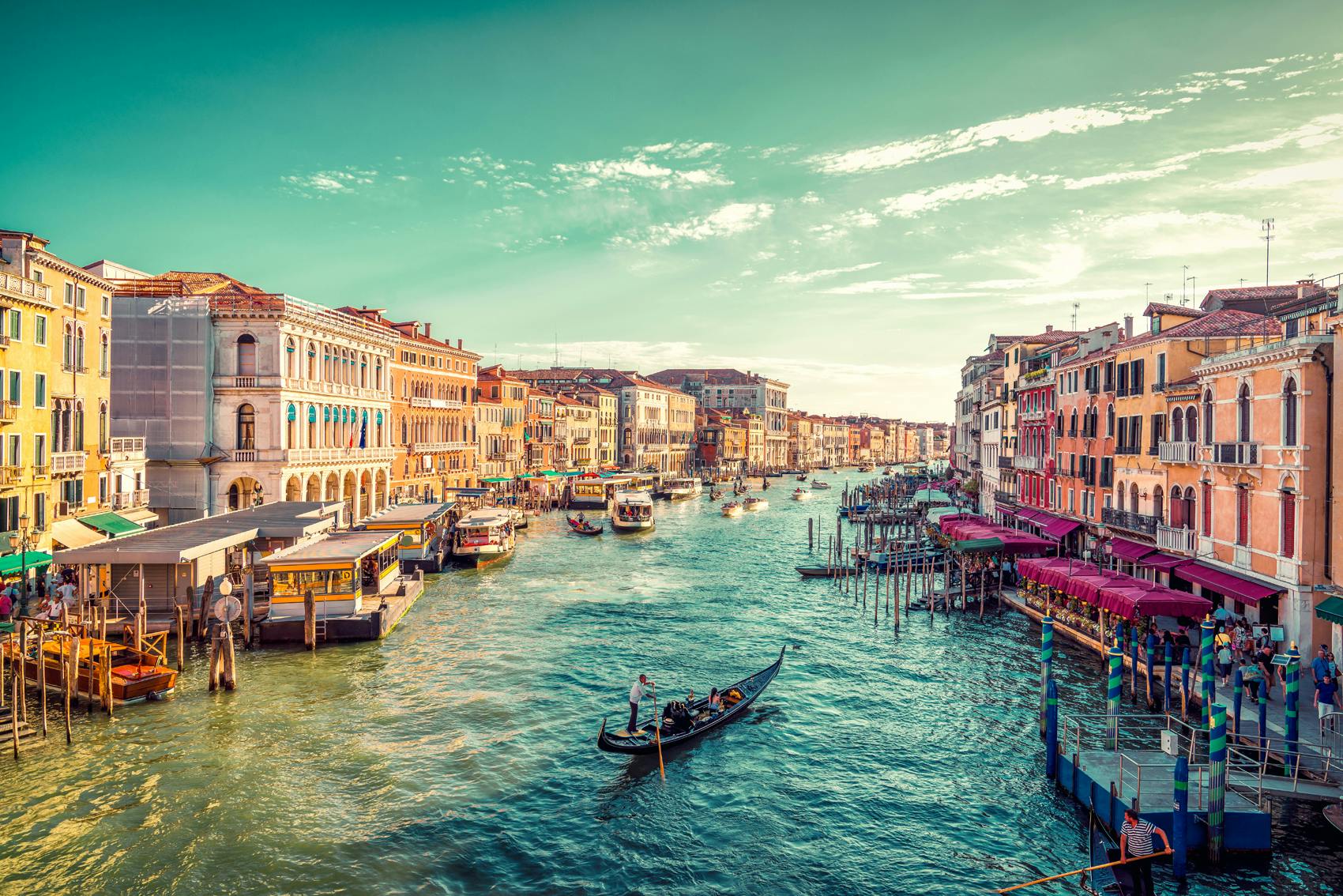How to Migrate to Italy and Get a Job: To work in Italy as a non-EU resident, you must first obtain a long-stay or work visa before applying for residency. Consider tailoring your resume, cover letter, and interview methods to the country’s standards in order to land a job. For instance, keep your resume brief and include one to two references.

Italy, shaped like a boot, is a country that frequently appears on the top destination lists of leading travel websites. This is unsurprising given that it is a country with everything—a perfect blend of the ancient world and modern society.
Living and working in this historic city, which is at the forefront of fashion and culture, will allow you to enjoy its sunny climate, breathtaking landscapes, inspiring architecture, and fine food.
READ: Easy Ways To Move To Italy And Get a Job | Jobs in Italy
When you’re not working, you could visit art cities like Florence, which has Michelangelo and Giambologna sculptures, or Venice, which has Gothic palazzi and canals. You could also cross Rome off your bucket list by relaxing in one of its delightful cafés. On other days, you could visit Milan’s fashion boutiques or Naples, the birthplace of modern pizza.
Despite the appealing Mediterranean lifestyle, work for native English speakers is difficult to come by due to the high competition for jobs. However, foreign workers who speak Italian and have the right combination of skills, qualifications, and experience may still be able to find work, particularly in major cities such as Florence, Milan, Genoa, and the capital Rome.

Best Places to Find Jobs in Italy
According to the International Monetary Fund, it is the world’s tenth-largest economy, but it is heavily reliant on its manufacturing and service industries. The unemployment rate in Italy is 7.8% (as of September 2022), after reaching double digits during the COVID-19 pandemic.
The north and south of Italy are starkly different; the north is more industrialized and developed, with an abundance of private companies, whereas the south is heavily reliant on agriculture and farming.
Because the majority of the country’s 60.3 million inhabitants live in the north, ambitious graduates are more likely to find work in large northern towns and cities such as Milan, Turin, and Genoa.
Furthermore, with millions of tourists flocking to Italy each year to see its famous sights, casual work and temporary contracts in the tourism industry are much easier to find than permanent employment in other sectors.
YOU MAY ALSO LIKE: 15 Countries You Can Get Work Visas Easily | Migrate & Work Abroad Now!
Most Italians aren’t fluent in English, so it’s unlikely you’ll find work unless you learn the language. Your English-speaking ability, on the other hand, will be highly valued, particularly in tourism and education. As a result, jobs teaching English as a foreign language are plentiful.
The economy is dominated by the services sector, with a strong emphasis on wholesale, retail sales, and transportation. Industry, which is driven by the production of luxury items such as fashion, automobiles, and furniture, accounts for a significant portion of Italy’s output. In terms of agriculture, Italy is a major producer of wine, olive oil, and fruit.
Although the number of multinational corporations in Italy is lower than in other European countries, strong Italian brands include Ferrari and Lamborghini automobiles, as well as fashion designers Gucci, Prada, Versace, and Armani.
Where can I find jobs in Italy? How to Migrate to Italy and Get a Job
Job positions in Italy are mostly advertised online and through recruitment agencies.
You can look for job openings in Italy at:
- Glassdoor – English-speaking jobs in Italy
- Total Jobs – Jobs In Italy
- Reed – Jobs In Italy
- TrovoLavoro.it
- The Local It
Skills/Job shortages in Italy
The following occupations have been identified as being in short supply in Italy:
- Business Consultant
- Doctor
- English Teacher
- Engineer
- Programmer.
The organization also examined employment growth in Italy across job sectors between 2018 and 2030, forecasting that administration services will account for roughly one-quarter of total demand, followed by health and social care and professional services.
How to Get a Job in Italy | How to Migrate to Italy and Get a Job
In Italy, networking through friends and family is still regarded as a viable method of learning about available jobs.
Finding a job when you’re already in Italy will be easier because you can start making contacts right away – wherever you decide to look.
If you work for a company with a presence in Italy, you could inquire about possible secondment opportunities.
If this is not possible, make speculative applications, which are encouraged in Italy because many jobs are not advertised. More so, if you go this route, make sure you do your research and send your application to the most appropriate person at the company.
Applications for advertised positions are typically completed online and include a CV and cover letter, or an application form. Unless otherwise specified, all applications must be submitted in Italian. Get your academic transcripts and certificates translated as well to save time.
Expect a lengthy application process that will include a series of interviews as well as psychometric testing.
Teaching Jobs – How to Migrate to Italy and Get a Job
English teachers are in high demand in Italy, so competition for positions is fierce, with many teachers expected to have at least a 100-hour TEFL certificate. Although opportunities exist throughout the country, the majority of teaching jobs are available in large towns and cities such as Rome, Florence, and Milan. You could teach English in public schools, private language schools, universities, or within businesses to their employees.
You can study for a relevant Teaching English as a Foreign Language (TEFL) qualification online, but some teaching jobs may require a Bachelor’s degree.
Teacher recruitment typically begins in the early spring for positions available in September/October.
More information about TEFL jobs in Italy can be found at TEFL jobs in Italy, and a list of language schools in Italy can be found at ESL Base – English language schools in Italy.
The British Council’s English Language Assistants scheme also provides opportunities to teach English.
Summer Jobs – How to Migrate to Italy and Get a Job
Because tourism is such a big business in Italy, finding casual or temporary work is pretty simple.
There are numerous seasonal jobs available, including bar, hotel, and restaurant work. You could work in summer camps or vacation resorts, or if you know how to ski, you could work at a ski resort in the Italian Alps.
Summer jobs in the agricultural sector include fruit picking and other outdoor activities.
If you have some childcare experience, you could look for work as an au pair.
Furthermore, volunteering is a great way to broaden your skill set and learn a new language if you have the funds to do so. Volunteering looks great on a resume and allows you to network and make contacts.

Internships Paid Jobs in Italy – How to Migrate to Italy and Get a Job
Because Italians place such a high value on networking, a work placement is an excellent way to expand your network in the country. An internship can also help you improve your language skills.
Internships in Italy typically last three to six months, and the country is especially popular with those seeking work experience in fashion, architecture, and art.
There are internships and summer work placements available at:
- GoAbroad.com – is a global internship search engine.
- AIESEC UK – is a youth organization that provides students and recent graduates with career-focused internships.
- Internship Italy – is a student recruitment agency that works with over 500 companies throughout Europe.
- IAESTE – Internships in science, engineering, technology, and applied arts (apply via the British Council website in the autumn).
Italian Visas and Application Requirements – How to Migrate to Italy and Get a Job
If you are an EU citizen or a citizen of Norway, Iceland, or Liechtenstein, you will not need a work permit to work in Italy. To stay in the country for more than 90 days, you must apply for residency at your local town hall (comune). They will be able to advise you on the documentation you will need to submit with your application.
Non-EU citizens, including those from the United Kingdom, will need a visa, a residence permit, and a work permit to live and work in the country. Depending on the purpose of your visit, different types of visas are available.
When applying, you have to submit a completed visa application form, a valid passport, recent passport photographs, and supporting documents, which may vary depending on the type of visa you are seeking. You should also double-check the required format of these documents, such as whether they must be:
- originals or copies
- translated
- dated within a certain time before submission
- signed electronically or with ink.
Note that if you’re a foreign national, you’ll need to apply for a residence permit as soon as you arrive.
To learn more about Italian work visas, contact your home country’s Italian embassy or consulate – in the UK, this is the Embassy of Italy in London – or visit the Italian Ministry of Foreign Affairs and International Cooperation.
You can find Italy’s latest foreign travel advice on GOV.UK.
Italian Jobs Language Requirements – How to Migrate to Italy and Get a Job
In most cases, being able to communicate fluently in Italian is required for employment.
Because many parts of the population do not speak English, knowing Italian will make living in the country much easier. English is more commonly spoken in tourist areas, large towns, and cities, and less commonly in rural areas.
Studying an Italian language course will assist you in learning the language or improving your skills to the required level.
The Best Way to Explain Your Qualifications to Employers
The UK and other countries’ qualifications are directly comparable to those in Italy, so they should be easily recognized by employers.
Visit ENIC-NARIC – Italy to learn more about comparing your international qualifications.
What is it Like Working in Italy? How to Migrate to Italy and Get a Job

If you work in Italy and have a social security number, you are entitled to all benefits, including free public health care, annual leave, and pensions. If you are self-employed, not all of these benefits may apply to you.
Family time is important in Italian culture, so employees strive for a healthy work/life balance.
According to Statista, the average Italian works 36 hours per week, with the maximum legal working week set at 40 hours, plus eight hours of overtime. Because work is typically highly structured, you’ll typically work Monday through Friday from 8/9 am to 1 pm, take a two-hour lunch break, and then work from 3 pm to 6/7 pm.
Every employee is entitled to at least four weeks of paid annual leave, as well as twelve public holidays.
There are five income tax bands, ranging from 23% on earnings up to €15,000 (£13,154) to 43% on earnings over €50,000 (£43,848).
Did you find that post (How to Migrate to Italy and Get a Job) helpful?


Leave a Reply